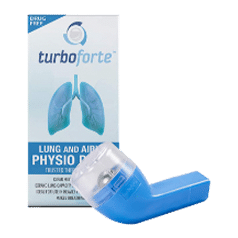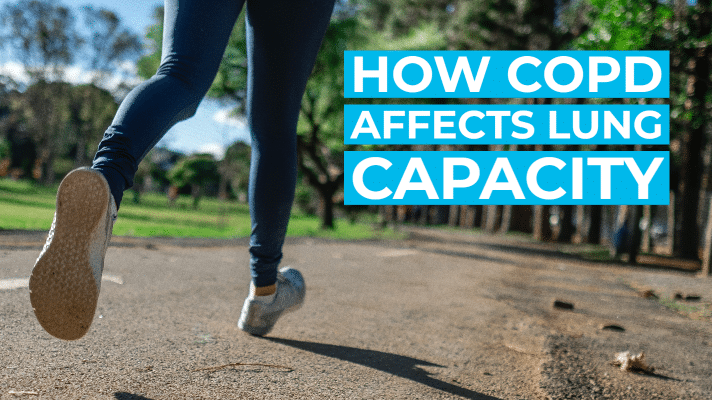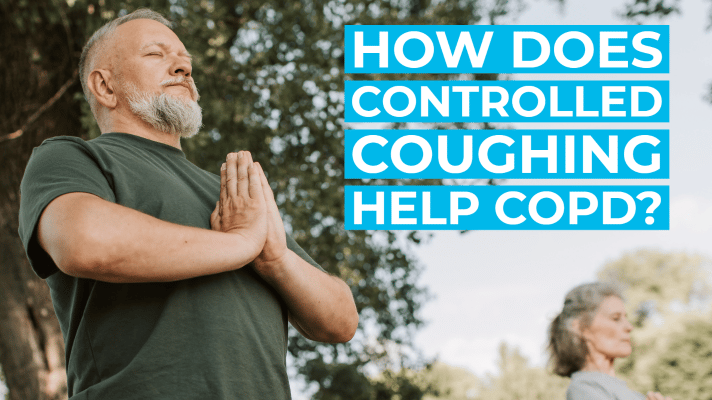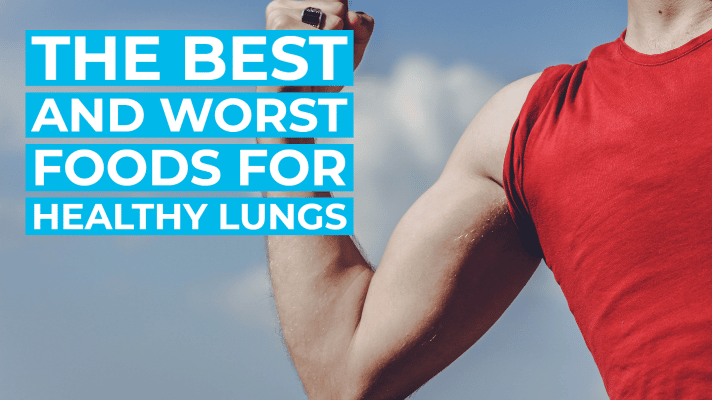As we enter the colder months of the holiday season, respiratory illnesses and infections become more prone to flare ups and keeping you up at night. Your sleep is highly important for essential bodily functions such as helping the body in physical recovery and repair, supporting brain development, cardiac function and body metabolism. For your lungs, bad sleep patterns can lead to respiratory instability and exacerbate symptoms.
For those living with COPD, chest pain, coughing and wheezing are all common symptoms that can severely impact sleep. But there are ways to improve your sleep and manage your COPD at night better!
What is COPD?
Chronic Obstructive Pulmonary Disease (COPD) is a chronic lung disease characterized by the presence of airflow obstruction in the lungs. It is an umbrella term for a group of lung conditions including, emphysema, chronic bronchitis, & chronic asthma. Cigarette smoking is the single most significant cause of COPD. Most people who have COPD are either smokers or former smokers. Other factors can cause or make COPD worse, including exposure to chemicals, fumes, air pollution or breathing in secondhand smoke.
With COPD, the airways are extremely sensitive and when inflamed, become narrow and contract, making it difficult to breathe.
Do COPD patients have trouble sleeping?
A large number of people living with COPD struggle with their sleep. Patients with chronic pulmonary disease experience low blood oxygen levels and sleep is a key time for the respiratory system to attempt to restore these levels. Additionally, there may be discomfort while attempting to sleep as the airways may be further obstructed while lying down or curled up, rather than when standing upright.
If you have been diagonosed with COPD, it’s a good idea to keep an eye out for possible signs of sleep apnea. The combination can put you at an accelerated increased risk for chronic health conditions like diabetes, pulmonary hypertension and even heart failure.
What sleeping position opens your airways?
The best sleeping position for people with COPD is one that opens your airways. Lying on your side with your head slightly elevated by a pillow is the best sleeping positon to open your airways and breath easier. It is important to avoid assuming the fetal position and try to keep your legs extended where possible. This is because when you are curled up too tightly, you may compress your airways and reduce airflow, exacerbating symptoms. Instead place a pillow between your legs and bend slightly for comfort.
There are some sleeping positions that you should avoid if you have COPD. Lying flat on your back or stomach makes your upper airways less stable and can interrupt your sleep. This is because your lung capacity is lower when you’re flat on your back and your tongue can fall backwards narrowing the airway.
How can I improve my sleep with COPD?
There are a few lifestyle changes that can help you manage and improve sleep disruption. Firstly, try and avoid naps where possible. If absolutely necessary, keep them short to around 20 minutes. Sleeping throughout the day can impact the quality of your sleep at night and make it more difficult to fall into deep sleep to restore blood oxygen levels.
It’s also important to go to bed at the same time every night, even on the weekends, as establishing a sleep routine can coach your body into relaxing around your chosen time of night, causing fewer disruptions.
Finally, due to the frequency of coughing and shortness of breath that may keep COPD patients awake, you may be waking up with a persisiting feeeling of tiredness. It is a good idea to plan your days to allocate longer time for sleep than the average recommended 8 hours, taking into account disruptions. This can improve your health and wellbeing by reducing the feeling of tiredness and fatigue.
How can I increase my lung capacity with COPD?
Improving and maintaining your lung capacity where possible is very important to reducing the severity of COPD symptoms in the day as well as the night.
Avoid Lung Irritants – smoking and frequent exposure to dangerous air pollutants like cleaning supply fumes, car exhaust fumes, smoke, industrial pollution and dust can irritate your airways. This may cause or worsen shortness of breath, coughing, wheezing, asthma episodes and chest pain that continue into the night.
Moderate Daily Exercise – The American Lung Association recommends ideally, you should be doing a minimum of 30 minutes of some form of cardiovascular exercise 5 to 7 days per week to enhance lung health. Aerobics, yoga and swimming are all great exercises for lung health and will tire you out, allowing you to fall asleep easier.
Breathing Exercise Device – A breathing exercise device is a handheld medically approved device that works to strengthen lung capacity through using a flutter valve to place gentle pressure on breathwork. Breathing slowly and intentionally with a breathing exercise device like the Turboforte Lung Physio allows your lungs to inflate fully. These deep breaths help break up fluid in the lungs that can lead to pneumonia and worsen other COPD related illness if it’s not cleared.
Found this helpful? Check out more of our lung health tips and tricks here.
Turboforte is easy to use, non-invasive, and medically approved. Read about how Turboforte has helped thousands in our customer testimonials here or purchase one for yourself today.
While Turboforte is a drug-free, all-natural way to help and can be used in conjunction with your usual treatment regime, always seek the guidance of your doctor or other qualified health professional with any questions you may have regarding your health or a medical condition. Never disregard the advice of a medical professional, or delay in seeking it because of something you have read that contradicts your doctor’s personal advice.
Excessive salt consumption causes fluid retention, which can make it harder to breathe. This is because when the body is forced to retain more fluid, it strains the heart to have to pump it through the body and the lungs work extra hard.







